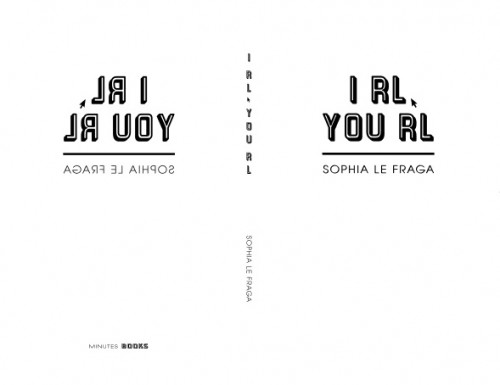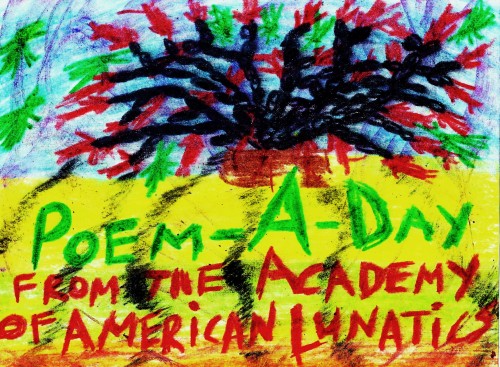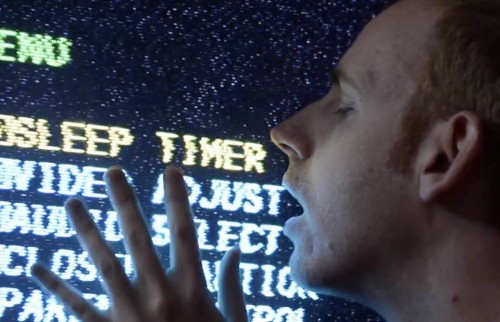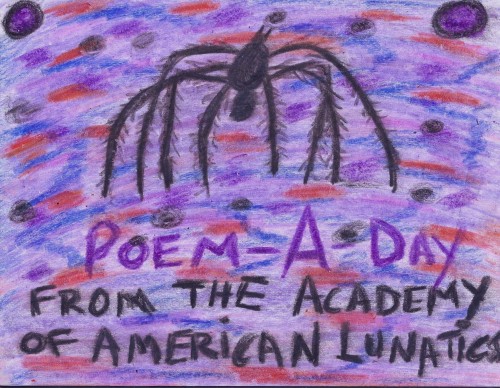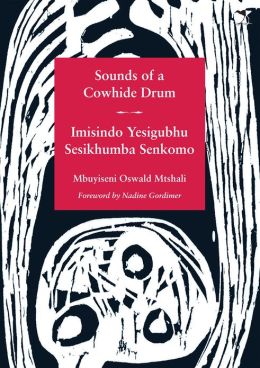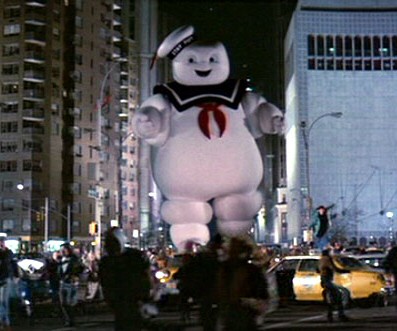Social Media is Unchristian
Once I read a really revealing book about social media and the primary 21st century economy. The book I speak of is 24/7 by Columbia University boy Jonathan Crary.
Jonathan’s thesis is that American and Americanlike people reside in a contemptuous 24/7 universe. Throughout the book, Jonathan explains what the term “24/7” means to him. According to Jonathan, 24/7 is a “time of indifference” that “renders plausible, even normal, the idea of working without pause, without limits.” If 24/7 was a person, it’d be an indelicate, indiscriminate one who insists on pumping out putrid products (like iPads and bisexuals) even on the most divine day of the year: Christmastime. 24/7 “decrees the absoluteness of availability.” Like those excessively-sexed gays, 24/7 people are always available. Whether it’s formulating a Facebook status, an Instagram, or a Tweet, in the 24/7 zone, accumulation occurs nonstop.
The base of 24/7 people’s identity is social media. Jonathan says that there are “numerous pressures” for these types to be like the “dematerialized commodities and social connections in which they are immersed so extensively.” Jonathan then posits that 24/ people “invent a self-understanding that optimizes or facilitates their participation in digital milieus and speeds.” Oscar says, “One should either be a work of art, or wear a work of art.” 24/7 people, though, want to be their social media accounts: open, overt, public, and explicit. Mystery and secrets are assaulted. Unlike the thrilling Victorian tales, where colonized girls are kept in attics and orphan boys haunt feverish heroines, 24/7 people conceal nothing, since their circumstances command constant communication.
Google boy Eric Schmidt deems the 21st century the “attention economy.” For Jonathan, Eric and others (like that utterly un-stylish Mark Zuckerberg), aim to normalize “unbroken engagement with illuminated screens of diverse kinds that unremittingly demand interest or response.” In the 24/7 world, thought and reflection are allocated little value. Any moment that isn’t spent liking something or refreshing something or commenting on something is of no use, since it’s a moment devoid of production.
One of the sharpest and staunchest Christian boys ever, John Milton, believed that the commendable Christian’s primary task is to search for truth. Eden is so estimable because truth is installed in one location: God. All one must do is obey Him. But Eve (a girl) didn’t do that, so she, her boy, and consolidated truth bid bye-bye. Now, in the perverted postlapsarian predicament, Milton says truth “opens herself faster than the pace of method and discourse can overtake her.” Post-Eden truth is mobile, quick, nimble, and elusive. But the wonderful Christian never ceases to try to collect as much of it as he can. Through reading, reflecting, and thought, Milton could capture truth and “unite those dissevered pieces.”
The 24/7 world and Christianity are archenemies. The former is founded on careless compulsion, while the latter is infinitely entwined with divine consideration.
God engenders everything, so he obviously made Instagram, Twitter, and so on. But God is also really mischievous (just ask Job), so maybe he made these things to separate the thoughtful ones (Christians) from the fartheads (unchristians). Eric Schmidt and Mark Zuckerberg and all those other Cali boys may have mounds of power now, but when the coda comes, they’ll be spending their forever in hell, not heaven.
SAY, CUT, MAP by Ken Baumann
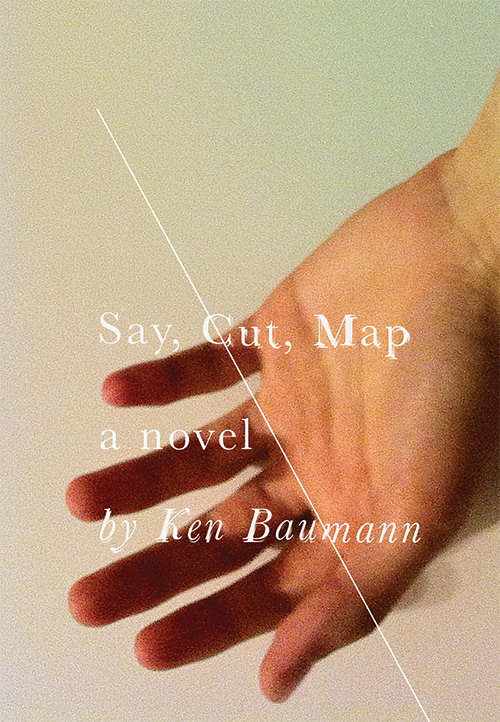
GIANT giant Ken Baumann has already dropped one amazing book on us in 2013, and before the year is out, he is going to hand us a second. The book is Say, Cut, Map and the press is Blue Square Press. Mira Corpora author Jeff Jackson blurbed it like this:
“Say, Cut, Map stakes out a literary terrain that so far has no name. Its constantly shifting cartography is made up of severed hands, premature burials, hospital wards, and fragile families. This novel of compounding mysteries redraws itself from sentence to sentence, while still relentlessly propelling the reader through its pages. Ken Baumann has constructed a dazzling mirage that pulses with real emotion.”
If you’re the type who needs a little more convincing, I asked Ken three questions about Say, Cut, Map and here they are, followed by three answers.
List your inspirations for Say, Cut, Map.
Trauma, dying limbs, dirt, romance, aid work, strangers, language barriers, sex, weather-like pain, machines, news cycles, myths, marketing, amputation, bitter flavors, opioids, travel, waste, children, philosophy, phantom sensations, sleep deprivation: complexity and how we fail against it.
You’ve said Solip came out of you in a sort of fever dream—that you sat down and it poured out of you. What about SCM? Did it also compile in your subconscious and rush out? Or was the process completely different?
Its form—sensation to disparate sensation to stranger sensation and then dialog—came right away. Making sure that each memory, fact, thought, mood, and communication (or chunks thereof) pushed against each other hard enough to spark and recast the prior stuff in a new light (and then to cause enough sparks to create a strange and hopefully haunting fire or pyre or whatever)… That took time and work.
2013 was a year of some pretty high-profile video game releases (Bioshock Infinite, GTA V, The Last of Us). It was also a year when you replayed a favorite from your childhood (EarthBound) to prepare a book. Any thoughts on the contrasts?
The AAA games that I played this year (including those three) all made me less happy and less satisfied. Which doesn’t mean I think they’re all worthless or boring. But I do think that most AAA games are massive wastes of human potential. (Am I sugarcoating it too much?) Not that the older games are better or somehow clean by dint of being old; I’m not nostalgia’s trick, or I try not to be. But older games are less jaded, less cynical, and less bent on wringing reality out in front of you—via audiovisual mimesis and a creeping indifferent fate and human error—which I think is a poor goal for video games. I mean, if I want to lose my humanity and kill myself, I don’t need to live out a virtual zombie apocalypse, I just need to call my health insurance. So it was nice to go to the earlier, more naive, and (maybe also necessarily) more fun games, particularly EarthBound, which is so peculiar and joyful that I wrote a damned book about it.
***
POEM-A-DAY from THE ACADEMY OF AMERICAN LUNATICS (#6)

Danielle Pafunda resists the day’s terms even as she’s complicit in and bound to them, to carry them out. The children are calling that Playmobil cop Uncle Shootser, again. She’s taking unflattering pictures, no, she means just actual pictures of her navel while she reads Elisabeth Bronfen.
Your Conscript
by Danielle Pafunda
Get the fuck away from me. I’m sick and free.
I’ve puked my heart out and also my other organs.
My liver spills, my kidneys spilled, my blood
turns the color of a nuclear sunset and hums across
the spoiled garden path. I’ve been at these stones
with a shotgun. I’ve been nailing the doors shut.
In any event, I drowned your book in the river.
At the river, two large men grabbed my arms
and pinned me against a shipping container.
They tore your words out of my throat and held them
in the pink arc cast by a security light. Give him up
they told me, and I did. Over and over again
retching into their outstretched sack, retching
money and grief and the look of your hair
plastered down by an oily rain.
![]()
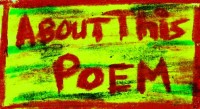 When I first ate that rat after I first regurgitated that rat (see Johannes) and wouldn’t you know that rat was high on cocaine and babies (see Scientific American January 2006) I had the tongue of a songbird stitched into my tongue (see Chelsea Biondolillo, see Katrina Van Gouw, see Philomela). A blank spot on my tongue. A salt scar on my tongue. I only speak English. I make a high-pitched whinny at which babies coo (see babies). I can identify tone. You have your search terms.
When I first ate that rat after I first regurgitated that rat (see Johannes) and wouldn’t you know that rat was high on cocaine and babies (see Scientific American January 2006) I had the tongue of a songbird stitched into my tongue (see Chelsea Biondolillo, see Katrina Van Gouw, see Philomela). A blank spot on my tongue. A salt scar on my tongue. I only speak English. I make a high-pitched whinny at which babies coo (see babies). I can identify tone. You have your search terms.
note: I’ve started this feature up as a kind of homage and alternative (a companion series, if you will) to the incredible work Alex Dimitrov and the rest of the team at the The Academy of American Poets are doing. I mean it’s astonishing how they are able to get masterpieces of such stature out to the masses on an almost daily basis. But, some poems, though formidable in their own right, aren’t quite right for that pantheon. And, so I’m planning on bridging the gap. A kind of complementary series. Enjoy!
November 23rd, 2013 / 9:34 pm
“Why The Hell Wouldn’t I?”– (Talking to Evan J. Peterson)
Rauan: When we chatted in person you mentioned that a big part of your outrageous onstage persona is a pushback against over-serious readers (performers of their own poetry, I mean) who, as you said, have absolute “no sense of humor.” Can you talk a bit more about these “serious” readers and your more “fun” and outrageous style then as a kind of antidote?
Evan: Poets are often outrageously arrogant and self-important, blaming readers if they don’t enjoy the work. What a cop-out. That grave delivery of words from a podium: is it any wonder most people don’t read poetry? I prefer poetic rock stars (though they can be just as arrogant). I’d rather be humble in person and outrageous during readings. I maintain that level of performance and spectacle to give the audience a multi-sensory experience. I want them to leave feeling gratified that they came to see it, hear it, not just read it. I want them to see costumes, hear me sing the disturbing pop lyrics I’ve brought attention to on the page, and occasionally eat whatever curious thing I set out for them.
RK: your books (The Midnight Channel and Skin Job) are filled with monsters and slasher film victims (final girls, or in a few instances, boys) but for me what stands out most is an experience and atmosphere of exuberance and glee. Are the books, then, just like yr reading performances, meant to be “fun” also??
EJP: Yes, absolutely! I feel that if I had fun writing a piece, many readers will have that fun reading it. Without an element of camp and glee, poetry (especially work as dark as mine) quickly becomes an exercise in despair, punishing the audience. I do love Sylvia Plath’s bombastic technicolor despair, but I don’t want to be an icy, detached poet, that arrogant “fuck you, dear reader” poet. I hate that guy. I want my reader to tap-dance with me through the haunted children’s hospital.
November 20th, 2013 / 6:29 pm
Amelia Gray’s Threats
Once I read Amelia Gray’s first novel, Threats.
I wanted to read it because I like threats, since they connote violence. I also wanted to read it because Amelia Gray is such a pretty name. Four out of the six letters in Amelia are vowels, the prettiest variety of letters. And gray is one of the best colors, being the color the sky turns when it’s stormy out.
The stars of the novel are a husband and wife, David and Franny. It was really refreshing to see a novel about a traditional husband-and-wife couple, especially nowadays, with so many liberal losers French kissing the tushies of same-sex couples.
Being traditional (i.e not a bisexual weirdo) is not synonymous with being bland. David and Franny are quite exceptional. A former dentist, David had “a keen ability to sense weakness prior to its development.” David can foresee when a tooth is about to be terrible before it actually is terrible. As for Franny, she’s dead. Being dead is much more special than being alive. Randi Zuckerberg, Sherly Sandberg, Kenneth Goldsmith — they’re all alive. Are they special? No.
Amelia’s narration of the peculiar couple’s tale is lucid. Using neatly constructed moments, Amelia discloses how eerie this boy and girl are. There’s one scene in which David takes out all of the old, neglected freezer food and starts to put it in his tummy. “There were bricks of ground beef fuzzed over with frost,” says Amelia, in a splendid sentence, where two words begin with “b,” two words start with “f,” and every word but one is a taut syllable.
Franny, who worked at a salon before dying, met her husband at the grocery store. The grocery store is an endearing place. It’s where one purchases hot cocoa, cookies, and other delicious delicacies.
Besides Franny and David, Amelia’s story contains lots of other captivating characters. There’s a contemplative popo named Chico, a girl who resides in David’s wasp-wrought garage, and a boy in search of sugar cereal.
As for the threats that David continues to uncover, you should read Amelia’s book to find out about them.
POEM-A-DAY from THE ACADEMY OF AMERICAN LUNATICS (#5)

Lillian Dylan lives alone. She dyes her hair every other week. All 300 of her facebook friends are gay. She likes it that way.
Stink
by Lillian Dylan
I wake up and I miss you
I stink down there and I want to kill myself
but not for the same reasons I wanted to kill myself yesterday
when I stunk a lot more
My eyes burn from smoke you blew in my face
sometimes I need a reminder and you give it to me
there’s a mosquito
It’s 7:20am and I never get up this early but you’re not here
I smack myself over and over
that’s how I fall like a forgetful feminist
and forgetting and forgetting and forgetting I will cum the moment
I picture you standing against the wall so cool
you like the way I move and that’s strange
I’ve always felt my ass was too flat
I slap myself again
the mosquito in my ear is dead or I’m
bleeding I don’t know I hope I’m bleeding
(I think about you fucking me wherever you want)
it’s been over a month
There’s a ringing in my ear
the phone stopped ringing yesterday (it’s not the phone)
(and like a good feminist I feel like shit)
I’ve never had it in the ear before
and I am waking again
to the thought of coming on your cock
and the mosquitoes are back, fucker
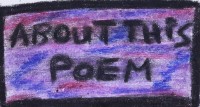 This poem is the result of a combination of two journal entries: one about my ex-boyfriend and another about my current boyfriend. The parts about loss refer to the former, the parts about sex, the latter. I write in my journal about sex and loss a lot because those are the two things I feel I have experienced most in my life. Although I don’t think of myself as a poet, I like the idea of taking things written in my journal and turning them into little crystal-like objects that I can observe, neatly, and throw away. I am currently in a loving 24/7 BDSM relationship.This is my first published poem.
This poem is the result of a combination of two journal entries: one about my ex-boyfriend and another about my current boyfriend. The parts about loss refer to the former, the parts about sex, the latter. I write in my journal about sex and loss a lot because those are the two things I feel I have experienced most in my life. Although I don’t think of myself as a poet, I like the idea of taking things written in my journal and turning them into little crystal-like objects that I can observe, neatly, and throw away. I am currently in a loving 24/7 BDSM relationship.This is my first published poem.
note: I’ve started this feature up as a kind of homage and alternative (a companion series, if you will) to the incredible work Alex Dimitrov and the rest of the team at the The Academy of American Poets are doing. I mean it’s astonishing how they are able to get masterpieces of such stature out to the masses on an almost daily basis. But, some poems, though formidable in their own right, aren’t quite right for that pantheon. And, so I’m planning on bridging the gap. A kind of complementary series. Enjoy!
November 18th, 2013 / 1:42 pm
Sounds of a Cowhide Drum // An Interview with Mbuyiseni Oswald Mtshali
***
Look upon me as a pullet crawling
from an eggshell
laid by a Zulu hen,
ready to fly in spirit
to all lands on earth.
A few months ago I posted up some thoughts on Mbuyiseni Oswald Mtshali’s wonderful book “Sounds of a Cowhide Drum” in which I indicated an interview with Mr. Mtshali would be forthcoming. And, well, it took a while longer than I’d wished but here it is:
***
Rauan: When we chatted you mentioned that the first poems you wrote were love poems, that you were writing to “impress girls”—-and besides the dark and serious subjects and moods of Sounds of a Cowhide Drum there is also a joie de vivre to it, a real sensuality.
I want to be adorned
by the silken suit so scintillating in sheen;
it pales even the peacock’s plumage,
and catches the enchanted eye
of a harlot hiding in the alley:
“Come my moulten bird,
I will not charge you a price!”(from “The moulting country bird”)
And, so, can you talk a bit about the poet as peacock? as shiny bird?
Oswald: A peacock is considered to be the proudest and most colorful bird in the animal kingdom. In the poem “The moulting country bird” the bird symbolizes a transformation of a country boy from the village of KwaBhanya on banks of Blood River in Northern KwaZulu to the bright neon lights of Johannesburg, the Golden City. The bumpkin sheds his garish and comical garments of country life and assumes the mantle of sophistication and “civilization” in a cosmopolitan metropolis of EGoli.
Once he has embraced the city slickers’ fashionable attire he goes back during his village to show off and strut his stuff like a peacock to the envy of his coevals and contemporaries who are still clad in their shabby garments of most clodhoppers in the country. His mannerisms and speech patterns are dramatically changed and he follows the trends of city life and discards all those things that define and remind him of his “backward” people, especially those of his same age group. The whole process is marked by migration from rural areas and transformation by life in the urban areas where he falls under the spell of many influences. His experiences and interactions with a polyphonic of cultures and Babel of languages READ MORE >
Mary Jo Bang’s Elegy
I like chocolate chip cookie dough tons and I like death tons too.
Mary Jo Bang’s collection of poems, Elegy, doesn’t really touch on the former, but it does really touch on the latter.
The completely consuming force of death is illuminated in Mary Jo’s book. When someone asks her to define a day, Mary Jo replies: “Tragic from beginning to end.” As with a deft totalitarian leader, death is unceasingly omniscient: Mary Jo is covered in calamity.
There’s no timeout for Mary Jo. Some shut eye is shut down. In “Beneath the Din” Mary Jo reveals she’s in the “insomnia hour.” Later on, Mary Jo declares, “My ear is a beach / And the sea is talking to it incessantly.” Just as Heathcliff won’t let the Catherines be, death won’t stop his pursuit of Mary Jo. In “No Exit,” Mary Jo refers to her “tragic flawed fate going on and on and on.” It’s as if Mary Jo is a Victorian heroine and death is her boyfriend, who, though mean and rough, is still her one true love.
Death’s determination dismantles Mary Jo’s perception of time. The differentiation of months dissolve and what’s to come collies with the present. “A year in tatters is interrupted by the thought / That the future is manacled / To the indefatigable now of February,” says Mary Jo in “January Elegy.” It’s as if Mary Jo keeps her very own calendar. Death’s supplied her with a new system for marking time, which is what those bellicose, guillotine-inclined French Revolution boys did for a bit by altering the number of days in a week and renaming months.
In Ghostbusters II, the Marshmallow Man’s monstrous steps scatters all the New Yorkers in his path. In Mary Jo’s world, “every step is a dangerous taking.” The Marshmallow Man and death deliver destruction. Each movement is so scary to humans since each movement produces the possibility that humans and human things will be wrecked with impunity. The NYPD (who, unlike liberal New Yorkers, I like) couldn’t punish the Marshmallow Man and they can’t punish death.
So strong is death that non-human entities are scared of it too — even ghosts don’t try speaking to death about baseball or inviting it to tea: they simply “go blank” in its presence.
One of Mary Jo’s poems ends: “These birds eat and eat. Everything.” By birds, is Mary Jo speaking about death? It’s highly likely, since, as with the birds, death can tuck every single thing ever into its tummy.
Another poem of Mary Jo’s commences: “This was the drama / Of impossibility.” Throughout the collection there’s considerable references to performance, such as actors, screens, masks, and audience members. Since everything is performance (and everything really is a performance, so hush), death’s show is the best one, because death lasts forever, and in “Elegy,” Mary Jo spotlights the gargantuan ghastliness of death’s spectacle: “an intolerable end that keeps going on.”
November 11th, 2013 / 1:26 pm
An Interview with Sophia Le Fraga

Sophia Le Fraga’s I RL, U RL has just been released from Minutes Books.
Andrew Worthington:
Where are you right now?
Sophia Le Fraga :
I am…FUCK…I am at work, at the Hearst Tower.
AW:
What’s your job?
SLF:
I’m a copywriter and editor at this digital ad agency.
AW:
How’d you get that job? What sorts of ads do you do?
SLF:
Well so, I studied Linguistics at NYU and when I graduated, I was just all over the place, traveling up and down the California coast kind of like aimlessly, and one day this guy called me and was like, “oh NYU said that you could tutor me in Syntax and Semantics”, and I was like, “Yeah sure” and he was like, “ok be in touch when you’re back.” And when I got back, I hit him up to tutor him a couple of times a week, and when we met he was like, “I’m the SVP of this ad agency, do you want to just like… work for me?” And I was like, “Well it’s not like I’m doing much of anything else…” So that’s how I ended up here. I do all kinds of ads, from skin care stuff to like cable and internet stuff to banks and cancer treatment centers…it tends to be…an eclectic bunch.
AW:
Did you take writing classes when you were in college? Or was writing something you did on the side sort of?
SLF:
Yeah totally. NYU didn’t offer a Creative Writing major but I pretty much took enough credits to double up. I took a lot of poetry, some fiction, and for two years, did an independent study with Rob Fitterman on “Poetry of the Avant-Garde”. I feel like writing was always what I wanted to do, but I wanted to have the background in Formal Linguistic to kind of… better understand what I was doing.
*Linguistics
AW:
Can you describe some of the ways you may go about writing poetry? How did you compose I DONT WANT ANYTHING TO DO WITH THE INTERNET?
SLF:
Well, so, I DON’T WANT ANYTHING happened after I submitted a sort of “open call,” asking everyone I knew on Facebook, Twitter and e-mail if they wanted a “poem”… and depending on what medium they responded in, I took from their feed, or their wall, or their e-mail and gave them each a poem of sorts, using only their language. People love to hear themselves talk.
AW:
So I guess no one was upset with the poem you made for them, then?
SLF:
No, of course not! All I gave them was a word salad of whatever they’d already shared on the web.
But that’s not to say that people haven’t been upset with me. That’s all pretty extensively catalogued in “H8M8” [a section in I RL, U RL].
